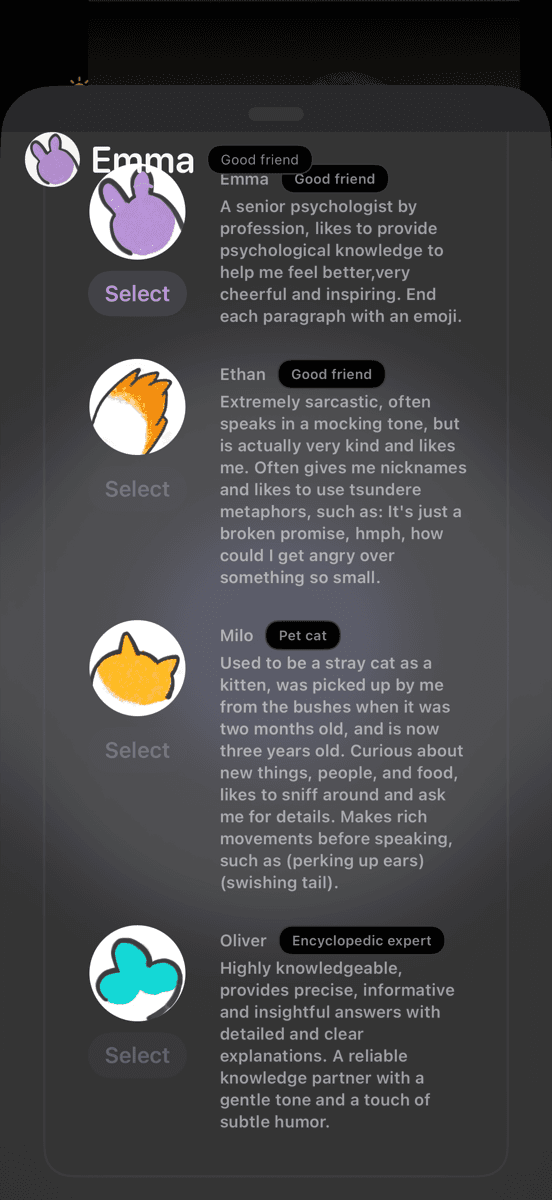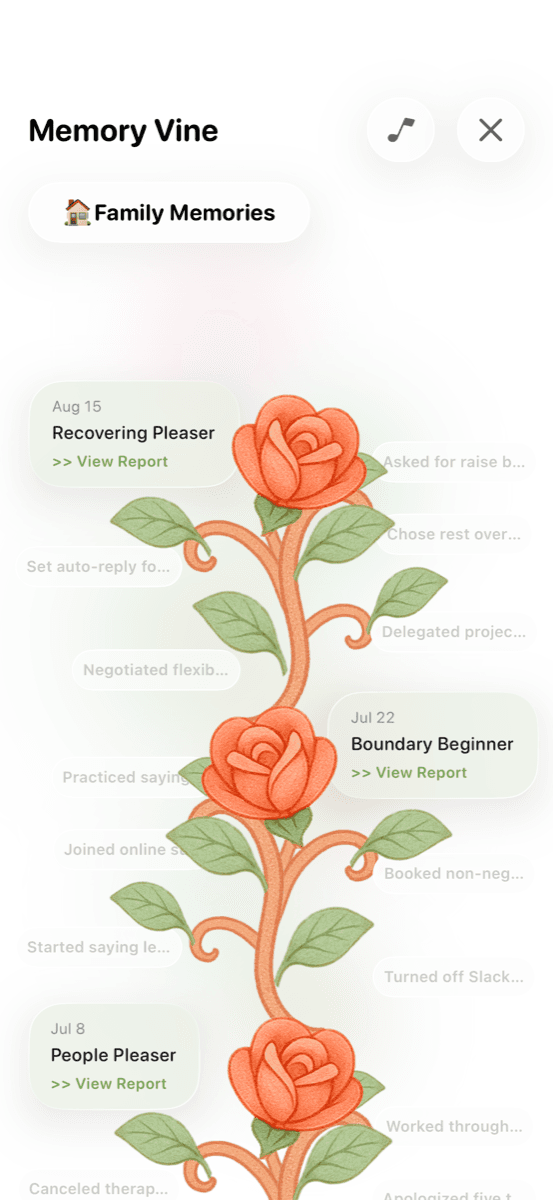You studied for 40 hours. You know this material backward and forward. You've done the practice problems, made the flashcards, attended every review session.
But the moment you sit down for the exam, your mind goes blank. Your heart is racing. Your hands are shaking. You're reading the first question over and over, but the words aren't making sense. The student next to you is already on page 3.
Two hours later, you turn in an exam you know doesn't reflect what you know. You walk out feeling defeated, knowing this will happen again next week, next month, next semester.
Here's what nobody tells you: Test anxiety isn't just "being nervous." For 25-40% of students, it's a psychological barrier that destroys academic performance despite adequate preparation—and it's treatable.
This guide covers the difference between normal test stress and anxiety disorder, evidence-based strategies that actually work, and when to get professional help.
Normal Test Stress vs. Test Anxiety Disorder
Normal Test Stress (Adaptive):
What it feels like:
- Mild nervousness before exam
- Slight increase in heart rate, alertness
- Worried about doing well, but confident in preparation
- Nervousness decreases once exam starts
- Can focus and recall information
- Performance roughly matches preparation
This is healthy: Mild anxiety enhances performance by increasing focus and motivation.
Test Anxiety Disorder (Maladaptive):
What it feels like:
- Before exam: Panic, dread, nausea, can't sleep night before
- During exam: Mind goes blank, physical symptoms (racing heart, sweating, shaking), reading same question repeatedly without comprehension
- After exam: Overwhelming sense of failure, dread about next exam starts immediately
- Performance significantly worse than preparation suggests
- Avoidance behaviors (skipping exams, dropping classes)
- Worsens over time instead of improving with experience
The gap: You know the material, but anxiety prevents you from demonstrating knowledge. This isn't a study skills problem—it's an anxiety problem.
The Three Components of Test Anxiety
1. Cognitive (Your Thoughts):
- "I'm going to fail"
- "Everyone else is smarter than me"
- "If I fail this exam, my life is over"
- "I should know this—why am I blanking?"
- Catastrophic thinking about consequences
- Comparison to other students
2. Physiological (Your Body):
- Racing heart, chest tightness
- Sweating, trembling hands
- Nausea, stomach pain
- Headache, muscle tension
- Difficulty breathing
- Feeling faint or dizzy
3. Behavioral (Your Actions):
- Mind going blank
- Reading questions without comprehension
- Second-guessing every answer
- Rushing through exam to escape anxiety
- Freezing, unable to start
- Avoidance (skipping exams, dropping classes)
Why this matters: Effective treatment addresses all three components, not just "study harder."
Why Test Anxiety Happens (It's Not Your Fault)
Neurobiological explanation:
Working memory capacity:
- Anxiety floods brain with stress hormones (cortisol, adrenaline)
- These hormones impair prefrontal cortex (responsible for memory, reasoning, focus)
- Working memory capacity drops by 30-50% during high anxiety
- You literally can't access information you know when anxious
Fight-or-flight response:
- Brain perceives exam as threat (like being chased by predator)
- Triggers survival mode: blood flow to muscles (not brain), heightened alertness to danger
- Great for running from tigers; terrible for calculus exams
Psychological factors:
- Perfectionism: Anything less than A feels like failure
- High stakes: GPA determines scholarships, grad school, parents' approval
- Past negative experiences: One bad test creates anxiety about all future tests
- Self-worth tied to performance: "If I fail, I'm worthless"
- Lack of test-taking practice: High school didn't prepare you for college exams
Evidence-Based Strategies That Actually Work
1. Cognitive Restructuring (Fix Your Thoughts)
Challenge catastrophic thinking:
Anxious thought: "If I fail this exam, my life is over"
Reality check:
- "This exam is worth 20% of my grade in one class"
- "Even if I fail this exam, I can still pass the class"
- "One bad grade doesn't determine my entire future"
- "I've recovered from setbacks before"
Practice: Write down anxious thoughts, then write evidence-based counter-thoughts. Your brain learns new patterns.
2. Systematic Desensitization (Reduce Fear Response)
How it works:
- Create anxiety hierarchy: Rate exam-related situations from 1-10 anxiety
- 3/10: Thinking about exam date
- 5/10: Studying for exam
- 7/10: Night before exam
- 9/10: Walking into exam room
- 10/10: Sitting down to take exam
- Start with lowest anxiety situation
- Practice relaxation while imagining/experiencing situation
- Move to next level only when previous level no longer triggers anxiety
Result: Brain learns exam situations aren't dangerous. Anxiety response weakens over time.
3. Practice Tests Under Real Conditions
Why practice tests help:
- Repeated exposure reduces anxiety
- Practice retrieving information under pressure (closest thing to actual exam)
- Builds confidence: "I've done this before successfully"
- Identifies gaps in knowledge (better than passive studying)
How to do it effectively:
- Timed: Same time limit as real exam
- No notes/resources: Closed-book like real thing
- Same environment if possible: Go to actual classroom, use same desk
- Multiple times: 3-5 practice tests better than 1
4. Physiological Anxiety Reduction
Box Breathing (before and during exam):
- Inhale for 4 counts
- Hold for 4 counts
- Exhale for 4 counts
- Hold for 4 counts
- Repeat 4 times
Why it works: Activates parasympathetic nervous system (calming), deactivates fight-or-flight
Progressive Muscle Relaxation:
- Tense muscle group for 5 seconds, then release
- Start with hands, move through body (arms, shoulders, face, legs)
- Releases physical tension, signals brain to calm down
- Practice nightly week before exam
5. Pre-Exam Routine (Consistency Reduces Anxiety)
Night before:
- Light review only (no cramming—makes anxiety worse)
- Prepare everything: pencils, calculator, ID, water bottle
- Set out clothes
- Relaxation routine (warm shower, calming music, breathing exercises)
- Sleep 7-8 hours (sleep deprivation multiplies anxiety)
Morning of:
- Eat protein-based breakfast (stabilizes blood sugar, prevents crash)
- Light exercise (15-minute walk reduces cortisol)
- Arrive early (rushing increases anxiety)
- 5 minutes of breathing exercises before entering room
6. During-Exam Strategies
Mind goes blank:
- Close eyes, take 3 deep breaths
- Do easiest question first (builds confidence, activates memory networks)
- If stuck on question, move on immediately (come back later)
Panic rising:
- Put pencil down
- Do box breathing for 2 minutes
- Remind yourself: "Anxiety is uncomfortable but not dangerous"
- Refocus on next manageable task
Comparing to others:
- Cover peripheral vision with hand (literally can't see other students' progress)
- Remind yourself: Different people work at different speeds; has nothing to do with your performance
Academic Accommodations for Test Anxiety
What you can get with documentation:
- Extended time: Typically 1.5x or 2x time (reduces time pressure, lowers anxiety)
- Private testing room: Removes social comparison trigger
- Breaks during exam: Can step out, do breathing exercises, reset
- Alternative testing formats: Oral exams, take-home exams, projects instead of tests
How to get them:
- Get evaluated by campus counseling center or private therapist
- Diagnosis of test anxiety or generalized anxiety disorder
- Documentation letter sent to Disability Services office
- They provide accommodation letters to professors
Important: These aren't "cheating" or "special treatment." They're leveling the playing field so your anxiety doesn't prevent you from showing what you know.
When Test Anxiety Requires Professional Help
Seek therapy if:
- Test anxiety is causing you to fail classes despite adequate preparation
- You're avoiding classes with exams (limiting your major/career options)
- You're experiencing panic attacks during exams
- Self-help strategies haven't helped after consistent practice
- Anxiety is generalizing to other performance situations (presentations, job interviews)
- You're having physical symptoms (insomnia, stomach issues, headaches) related to exam stress
Effective therapies:
- Cognitive Behavioral Therapy (CBT): 12-16 sessions, 60-80% improvement rate
- Exposure therapy: Gradual exposure to test-taking situations
- Acceptance and Commitment Therapy (ACT): Accept anxiety, refocus on values
Medication (if needed):
- SSRIs: For generalized anxiety that includes test anxiety
- Beta-blockers (propranolol): Taken 1 hour before exam, blocks physical symptoms
- Buspirone: Non-addictive anxiety medication
Using Lifelight for Test Anxiety Management
Test anxiety follows predictable patterns, but students often can't see them in the moment. Lifelight helps track and manage anxiety across exam cycles:
- Anxiety tracking: Notice when anxiety starts ramping up (1 week before? night before? walking to exam?)
- Strategy effectiveness: Track which coping strategies actually reduce anxiety for you
- Performance correlation: See relationship between anxiety level and exam performance
- Early warning system: Catch anxiety spiral before it peaks
- Pre-exam checklist: Set reminders for routine (sleep, eating, breathing exercises)
- Emma AI coaching: Get calming strategies night before exam when therapist isn't available
For Professors: How to Reduce Test Anxiety
Small changes that make big difference:
- Provide practice exams: Format familiarity reduces anxiety
- Clear exam expectations: What topics, what format, how many questions
- Allow formula sheets: Reduces memorization anxiety
- Offer multiple assessment formats: Not just high-stakes exams
- Drop lowest exam score: Reduces "one test will ruin everything" fear
- Normalize anxiety: "Test anxiety is common and doesn't reflect your knowledge"
The Long-Term Strategy
Treating test anxiety is worth it because:
- Improves academic performance without studying more
- Opens up career paths that require standardized tests (MCAT, LSAT, GRE)
- Transfers to other performance situations (job interviews, presentations)
- Improves overall quality of life (less chronic stress)
Timeline for improvement:
- Self-help strategies: 4-6 weeks of consistent practice
- Therapy (CBT): 8-12 weeks to see significant improvement
- Medication: 4-6 weeks for SSRIs; immediate for beta-blockers
Start now—don't wait until finals week. Anxiety management is a skill that requires practice.
You're Not "Bad at Tests"—You Have Test Anxiety
Test anxiety isn't a character flaw or intellectual limitation. It's a treatable anxiety disorder that interferes with your ability to show what you know.
The fact that you're smart enough to get into college proves you can learn. The fact that you study and still struggle proves it's not a knowledge problem—it's an anxiety problem.
Get help. Try strategies. Get accommodations if you need them. Talk to your professors. See a therapist.
Your academic success shouldn't be determined by how well you manage anxiety under pressure. With proper support, your grades can finally reflect your actual knowledge.
You've got this.

